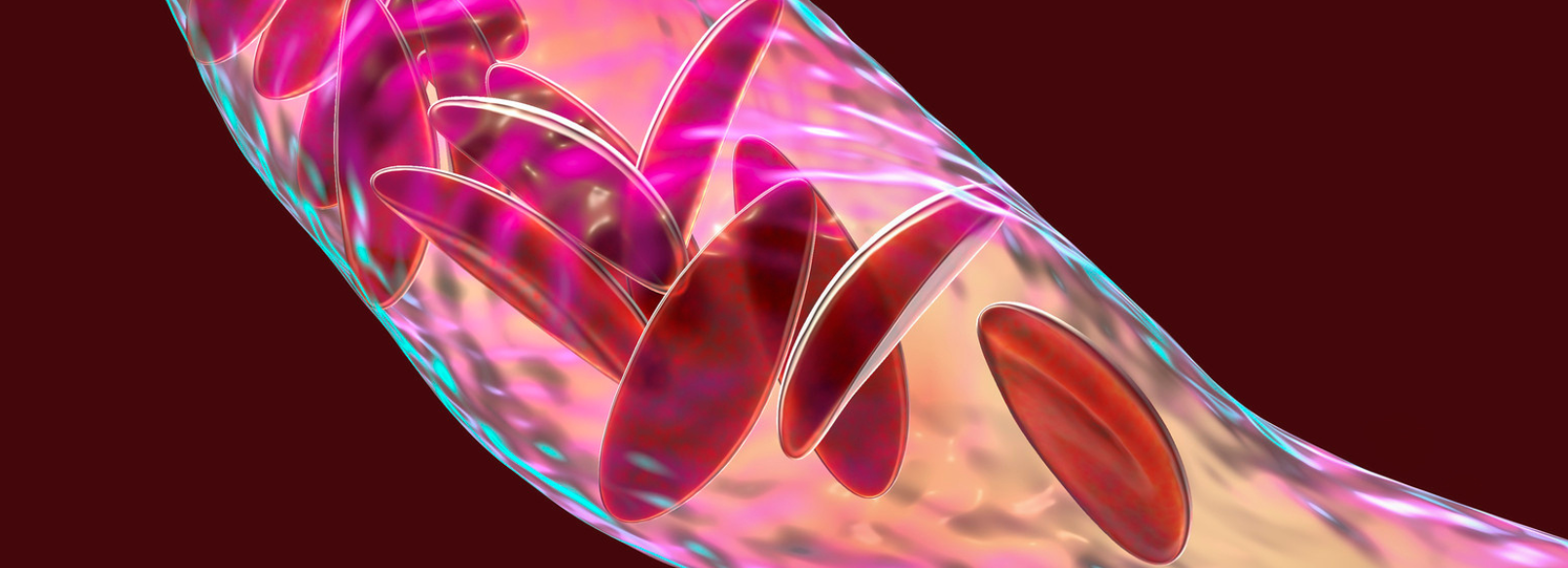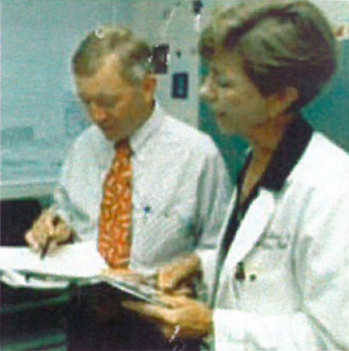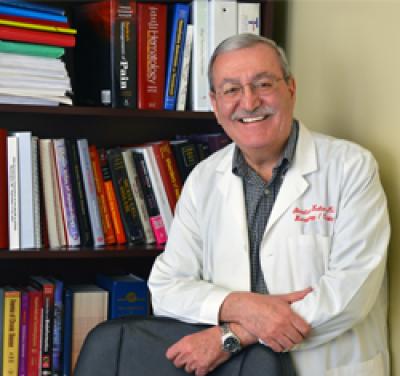
- Augusta University
- Centers & Institutes
- Center for Blood Disorders
- Sickle Cell Center
Sickle Cell Center
The Sickle Cell Center is a comprehensive internationally recognized center for sickle cell treatment and research.
The center is part of the Center for Blood Disorders and incorporates the work of faculty from medicine, pediatrics, hematology/oncology, allied health, anesthesia and perioperative medicine, biostatistics and epidemiology, molecular biology, and other specialties. This multidisciplinary approach creates a dynamic synergy that places the center in the forefront of patient care, research, and education. The center was established at the Medical College of Georgia in 1972.
Jump to: Our History Clinical Leadership
Contact Us
Sickle Cell Center
Health Sciences Campus
Mon. - Fri. 8 a.m. to 5 p.m.
The most common inherited blood disorder in the U.S.
The effects of sickle cell disease can be devastating with symptoms consisting of severe pain, anemia, infection and stroke. Sickle cell disease affects approximately 100,000 people in the United States.
While it affects mainly African Americans and people of Hispanic heritage, it is also prevalent in persons of South or Central American, Caribbean, Mediterranean (countries such as Turkey, Greece, and Italy), Indian, and Saudi Arabian descent. Sickle cell disease or trait also affects people of Caucasian descent.
Our History
Augusta University has played an important role in the development of clinical programs and research in sickle cell disease. From the 1920s through the 1950s, Dr. Virgil Sydenstricker, for whom a branch of the hospital building is named, had a strong interest in sickle cell disease. Dr. Titus H. J. Huisman (1959-95) led hemoglobin research and later the Sickle Cell Center. His laboratory discovered a large number of the approximately 700 known hemoglobin variants and enticed scientists and researchers from all parts of the world to come to the Medical College of Georgia, which is now part of Augusta University. Under his direction, the Sickle Cell Center was born with funding for more than 15 years provided by the National Institutes of Health.
Clinical Leadership

Dr. Paul F. Milner
Dr. Milner arrived at the Medical College of Georgia in 1976 and was a part of the first Comprehensive Sickle Cell Center. He developed the Adult Sickle Cell Clinic and served as its only physician for more than 20 years. In 1995 the first support group for sickle cell patients in the Augusta area was formed and named "The Paul F. Milner Sickle Cell Support Group" in honor of Dr. Milner.

Drs. Virgil & Kathleen McKie
Drs. Virgil and Kathleen McKie joined the Medical College of Georgia in 1982 caring for pediatric patients. They educated parents and children about this disease and provided care to patients living in rural areas in Georgia. Drs. McKie also devoted a large amount of time to training young medical students, interns, and residents. Teaching these young professionals ensured that their sickle cell patients will receive the best of medical care for many years to come.

Dr. Abdullah Kutlar
Dr. Kutlar came to Augusta University in 1984. He worked in the laboratory of the Sickle Cell Center for 6 years studying hemoglobinopathies and laboratory aspects of sickle cell disease. Dr. Kutlar became a member of the faculty in the Department of Medicine in 1992. Because of his experience as a scientist, researcher, and clinician in the field of hematology, particularly in the area of sickle cell disease, he was named Center Director in 1994. Dr. Kutlar also travels throughout Georgia to care for patients in rural areas and provides teaching and training for young medical professionals and scientists. His research has been supported by the NIH and pharmaceutical companies.
This rich heritage in sickle cell disease research will continue to grow and enrich the lives of patients, parents, and young professionals thanks to the commitment of this institution. The compassion and dedication of our faculty and staff ensures that our patients will always receive the very best of medical care.
Great Doctors, Great Medicine Since 1828.